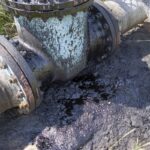Recent Blog Posts

New Jersey Announces Numerous Enforcement Actions Targeting Environmental Injustice
New Jersey recently announced a number of environmental enforcement actions aimed at alleged pollution in areas with a history of “environmental injustice.” The lawsuits concern “overburdened” neighborhoods and are part of the state’s push to protect communities that have historically suffered the most with regard to pollution and environmental contamination. Read on to learn… Read More »

EPA to Issue Revised Phase l Environmental Site Assessment Standard
Environmental Site Assessments (ESA) have become a regular part of real estate development in the United States. The requirements for performing a proper ESA, or at least for identifying what counts as an actual problem condition and how to respond appropriately, have been a bit of a moving target for industry insiders to puzzle… Read More »

NJDEP New Guidance for Contaminants of Emerging Concern
On August 5, 2021, the New Jersey Department of Environmental Protection (NJDEP) issued new guidance concerning contaminants of emerging concern (CEC). The guidance pertains to contaminants that have recently been shown to occur in the environment and have been identified as a potential environmental or public health risk, including per- and polyfluoroalkyl substances (PFAS)…. Read More »

Lawrence Service Station Demolished, Park to be Established After Contamination Analysis
A notorious former Pit Stop service station in Lawrence Township was recently demolished after the township obtained a roughly $240,000 grant from the New Jersey Department of Environmental Protection’s (NJDEP) Hazardous Discharge Site Remediation Fund to pay for the demolition of the building and to study the soil underneath it. The demolition and study… Read More »

Regulated vs. Unregulated Storage Tanks
Not all underground storage tanks (USTs) are treated the same under New Jersey law. There is a long list of regulatory and administrative requirements for dealing with a UST on your property, particularly if there is a leak and/or potential contamination. New Jersey’s Administrative Code specifically exempts certain types of USTs from these regulations,… Read More »

NJDEP Issues Amendments to Site Remediation Rules
The New Jersey Department of Environmental Protection (NJDEP) is at it again. NJDEP issued a New Jersey Register notice on May 17, 2021, amending site remediation standards for all cleanups across the state. Originally proposed in April 2020, these amendments make huge, sweeping revisions to the standards. Continue reading for an overview of the… Read More »

New Jersey Court Finds Delivering Oil Not Grounds for a Spill Act Claim
The New Jersey Spill Compensation and Control Act (Spill Act) establishes that anyone responsible for a discharge of hazardous substances is liable in contribution to the party that remediates the spill. Language in the Spill Act can be very vague, and alarmingly broad, with regard to who may be held responsible. Recently, a Spill… Read More »

U.S. House Considers Bills to Incentivize Biofuels, Allow USTs to Store Higher Ethanol Blends
A pair of bills concerning biofuels and greenhouse gas modeling were recently introduced into the U.S. House of Representatives. The Adopt GREET Act would require the Environmental Protection Agency (EPA) to update greenhouse gas modeling concerning ethanol and biodiesel in order to “more accurately reflect the environmental benefits of agriculture and biofuels.” The Renewable… Read More »

NJDEP Issues Additional Extension to Remediation Deadlines
Unfortunately, the coronavirus pandemic has yet to end. With the wide distribution of several vaccines on the horizon, we all hope that there will be a “return to normal” soon enough, possibly as soon as this summer. For the moment, however, quarantines and shut-ins are still in place around the country, and business-as-usual has… Read More »

EPA Proposes Action Concerning Economic Harm, Renewable Fuel Standards, and Ethanol Storage
The United States Environmental Protection Agency (EPA) is taking many actions through the Renewable Fuel Standard program intended to help farmers and refiners, especially those affected by the COVID-19 pandemic. The EPA is proposing rules concerning E15 label revisions underground storage tank (UST) compatibility, as well as rules concerning compliance with the Renewable Fuel… Read More »
